Remembering Vinod Khanna on his birthday: The legend who was a quintessential male eye candy but also that rare star who thumbed his nose at filmy frills
If Vinod Khanna were alive today, he would have been 71. In his heyday, he was the only solid contender to the lone ranger might of Amitabh Bachchan. Off screen, the two were great friends though. When Khanna renounced films in 1982 at the height of his popularity to join Osho's Oregon ashram he proved that he was truly a seeker and a "sanyasi, albeit a sexy one.
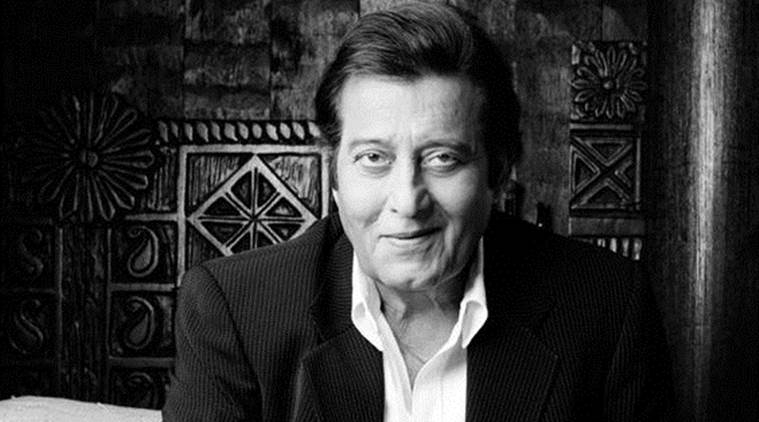 Vinod Khanna (Express archive)
Vinod Khanna (Express archive)Veteran actor, Bollywood pin-up, sweetheart of the Seventies, gentleman politician, sexy sanyasi, spiritual seeker, the ultimate friend, star of a string of twin-hero hits with Amitabh Bachchan, doting dad to actors Akshaye and Rahul Khanna and Bollywood's eternal Amar. It is hard to define who Vinod Khanna truly was. When he died earlier this year at the age of 70, the entire Bollywood, both young and old alike, joined together in mourning the loss of one of Hindi cinema's legends. "You were the fantasy of most women in the northern India through the 1980s, tweeted actress Richa Chadha, who wasn't even born when Vinod Khanna was in his prime in the 1970s and early 1980s. Even for many younger-generation Bollywood actors like Chadha, and film buffs in general, Khanna was that rare male eye candy who lent both glamour and gravitas to his roles to create an incredibly unique and diverse body of work.
It might surprise you to know that Khanna, with his leading man looks, started out as a villain. But he couldn't stay there for long. He was too good-looking to be a villain! Blame Sunil Dutt for it. The late actor-producer spotted Khanna, a fellow Punjabi, at one of the countless swish Bombay parties that the young bon vivant used to frequent and decided to cast him as the bad guy in Man Ka Meet in 1969. Though designed as a launch-pad for Sunil Dutt's younger brother Som Dutt, Man Ka Meet ended up projecting Khanna into the horizon as a promising star to watch. After Man Ka Meet, the young Khanna, born into a prosperous business family, quickly got typecast as a villain. In Mera Gaon Mera Desh, his most famous outing as a baddie yet, Khanna was Jabbar Singh, a dacoit whose dreaded name and equally dreadful exploits inspired Gabbar Singh of Sholay.
With his manly, handsome looks later on, when he became godman Rajneesh's (Osho) follower, a more fashionable and memorable description started doing the rounds, sexy sanyasi' and captivating screen presence, Khanna added gruff glamour to the palette of Bollywood villainy, which until then had been dominated by the likes of the suave Pran and Ajit. But then, it must be pointed out that Khanna was only moonlighting as a villain. He was never in it for the long haul. And yet, his formative career got interminably defined by the cinematic brand of outlaws and dacoits that he played in film after film, in which he grabbed more eyeballs than the hero.
If 1971 was a breakthrough year, thanks to Mera Gaon Mera Desh it was also memorable for Gulzar's Mere Apne which was instrumental in providing him a much-needed switch to hero roles. In Gulzar's directorial debut that explored campus politics, a seething Khanna teamed up with Shatrughan Sinha, with whom he would go on to make for a successful bromance. However, it was with Amitabh Bachchan and Feroz Khan that Khanna developed a much more magical male bonding. Mere Apne also set the tone for Khanna's enduring 1970s screen image the sexy beast who was also a true-hearted friend. Khanna definitely had the disadvantage of playing second leads in two-hero projects mainly designed to boost the Amitabh Bachchan cult but he never failed to hold his own even in the larger-than-life presence of Big B.
In a series of hits such as Hera Pheri, Amar Akbar Anthony, Parvarish and Muqaddar Ka Sikandar, Khanna posed a serious challenge to the hitherto-unchallenged stardom of Bachchan. He was the Amar to Bachchan's Vijay, their screen names suggesting something about how their lives and career would shape up eventually. If Vijay is victory, Amar is immortal. In a popular scene from Amar Akbar Anthony, as the elder brother Amar, Khanna gets to rough up Anthony, a loveable rogue played by Bachchan. You can imagine the audience of the day lapping up that scene as the two brothers are pitted against each other in an overwhelmingly one-sided clash. Bachchan was the jester who got the laughs but you bet Khanna had the audience sympathy. Sacrifice for the sake of friendship was a recurring theme of many of Khanna's popular hits. In Muqaddar Ka Sikandar (1978), Bachchan dies in the arms of his trusted friend while in Qurbani (1980), Khanna becomes the sacrificing figure of the title who gives up his life to save his friend's (played by Khan). If there was no Dharmendra in that ultimate temple of male kiss called Sholay you might think of Vinod Khanna as a serious contender, but then, it's also fair to ask would he be able to pull off Veeru with such natural comic timing as the goofball Dharmendra did? Clearly, Khanna had his limitations as an actor. Comedy was not his strong suit and he was smart and practical enough to know what he was capable of.
In the masculinity department, Khanna belonged to the Dharmendra pantheon. Much like the He Man, he was the guy's guy with a raw maturity and old-school charm that made him irresistibly attractive to women, unlike so-called rival Amitabh Bachchan whose ticket-buyers were strictly male. The womenfolk went to see the heartthrob Rajesh Khanna while Vinod Khanna attracted the label of a thinking-woman's sex symbol. There was also something classy about Vinod Khanna, for he wasn't given to an obscene pursuit of fame and money, like everyone else in the glamorous world of movies.
He was the rare star who thumbed his nose at filmy frills. In 1982, the same year as Bachchan's near-fatal injury on the sets of Coolie, Khanna made an unexpected exit from Bollywood and from the material life, reportedly joining Osho in Oregon to be his gardener! In the following years, Bachchan entered politics and went from a Member of Parliament and the most important man in India after Rajiv Gandhi to box-office poison. Had the game turned out differently if Khanna had stayed on? We will never know but most critics cite him as an example of lost potential, a maven who nevertheless was the master of his own mind. "Vinod Khanna, to me, was a yogi, wrote Shobhaa De in an obituary, published in Mumbai Mirror in May this year. "Someone in search of an elusive higher truth, and possibly, himself. He seemed like a man on a mission looking for deeper explanations to life than the mundane ones most of us settle for. His spiritual quest was the single most attractive quality he possessed. A seeker is always a more interesting person than someone who has all the answers. Despite his five year absence from films, when Khanna made a comeback he had enough goodwill and stardom left to help him tide over the so-called "self-destruction and "downfall that the trade had predicted. Insaaf, Dayavan and Chandni were runaway hits, proving that he was still box-office catnip.
On the Simi Garewal chat show, billed as a tell-all, Khanna was asked about his sudden decision to renounce films and family to follow his "inner voice. To a prodding by Garewal, he said, "Everybody has to travel alone. You come alone. You go alone. Vinod Khanna did go alone, like men before him, but not without a hint of smile and contentment at a life lived deeply and meaningfully. "Rote hue aate hain sab, hasta hua joh jaayega, woh muqaddar ka Sikandar jaaneman kehlayega, chanted the destiny's child Amitabh Bachchan riding on a motorbike in Muqaddar Ka Sikandar. Maybe, Bachchan was singing it for his devoted friend, companion, colleague and rival.
(Shaikh Ayaz is a writer and journalist based in Mumbai.)






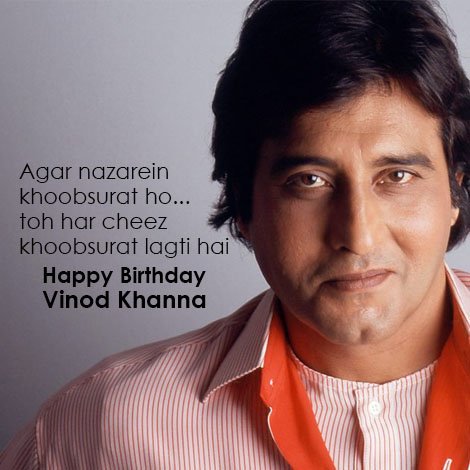




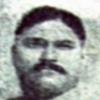

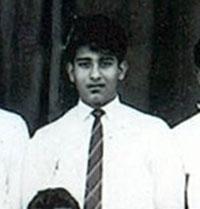


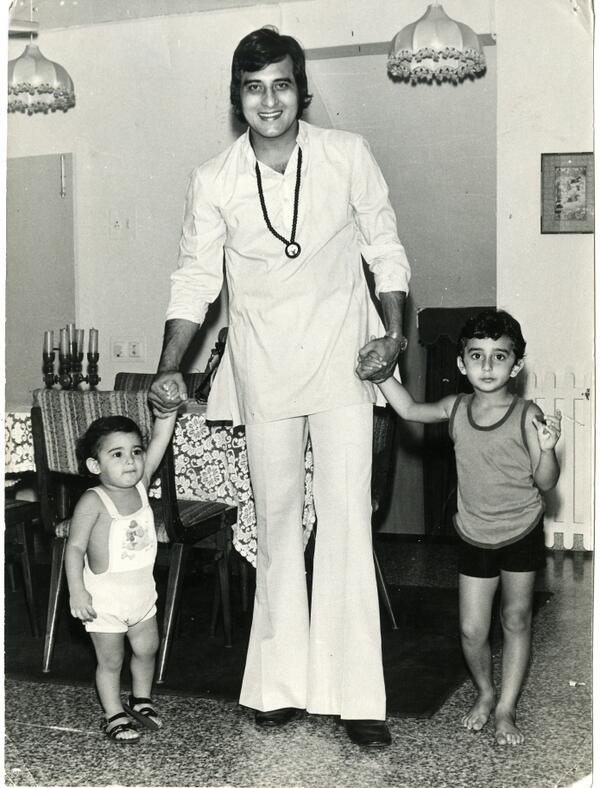
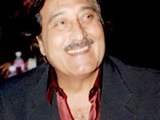

comment:
p_commentcount